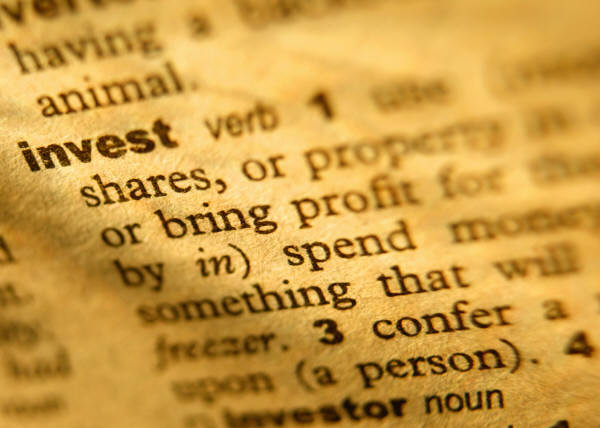A lot of us begin asking questions like this when we are in our early or late 20s. We suddenly realize that the responsibility of having a job, paying expenses, and starting to save bring on thoughts of…well…what you should do with the extra! 
In order to start investing, and possibly start picking an investment advisor, a few things must be in order to start with. Let me walk you through some of these, and then we can begin to talk about where you should actually take your hard earned money, and what might be the best option for you.
1. Make Sure You Have an Emergency Fund
In a previous post, I talked about the importance of everyone having an emergency fund. That’s right…EVERYONE. No matter how much you make in a year, or how little, you should be working towards this goal of having 3-6 months of your expenses in a liquid account, which means you can easily access it. Think checking account.
2. Know Your Risk Tolerance
When it comes to investing, there are all different types of people, some of which enjoy taking more risk with their portfolio, and some of which like a more conservative approach. Risk yourself on a scale of 1 to 10, and ask yourself the question, “If I had a portfolio of $50,000, where would I want it to be on that risk scale?” What might be helpful is to look at the past actions you’ve taken with your money. Have you been a conservative saver your whole life? Then you might be closer to a 2 or 3. Have you spent money on items or properties you know would appreciate in value, although they were a big move at the time? Then you might be closer to a 7 or 8.
3. Past the Emergency Fund, How Much Have You Saved?
Many times people will come up to me and ask, “What amount should I have saved up before I begin investing?” That is a great question, and also a very tough one to answer, because it all depends on your situation. First and foremost, you need to know how much you can have in investments that you are completely ok with not touching. With market volatility, it’s important to remember that many investments might need to be held out for the long run, and will not grow overnight, unless you are interested in day-trading…which I am not a big fan of. So what all of this means is that you should not look at your investment money as liquid, although it might be in the technical sense, because it might need a few years to grow.
As a side note, many people were in a panic when the real estate market crashed, and many still are. Yet I think the same principle can be applied here. What you might have to do in that situation is simple: hold on to it, and ride out the market volatility. “Good things come to those who wait…” – ever had that on a fortune cookie? I know I have…and it’s true!
If I were to put a dollar amount on what you should have saved up for investment purposes, I would say anything over $20,000. That is when you can get past the E-trade accounts, and start moving on to the advice of a good financial advisor.
4. Your Debts Must Be In Order
This should go without saying, but oh well, I’m saying it! All of your debts should be under control when you are entertaining the idea of investing. What do I mean by “under control”? Well I take the more conservative approach on this, and I like to have pretty much all of my debts paid off before investing. Note – this does not include your mortgage, because that is a special kind of debt that you won’t need to worry about when it comes to investing. Any credit card debt, school loans, or even car loans, (in my opinion) should be paid off.
5. You Have Positive Cash Flow
In looking at the overall picture of your income and expenses, you want to always have a positive cash flow at the end of the month, and year for that matter. This simply means that your income is greater than your expenses, and you usually have a little bit (or a lot) left over every month. That way, if you do decide to invest, you have a little “wiggle room” for unexpected expenses that might come up.
Looking at these 5 areas, you need to analyze what your specific financial picture might be. In the long run, you should be looking to invest, but if circumstances have caused you to loose your financial security, you may not be ready at this point in time.
I want to point out that many Americans cannot answer to these 5 areas in the right way. Many people are struggling with debt, not saving for an emergency fund, and operating at a negative cash flow. If you are working towards doing all these things right, you are WAY ahead of the curve, and I commend you for that! Look for future posts on where to start investing, and I will give you the ins and outs of what it means to really make that dollar grow!
By: Erika Pizzo

